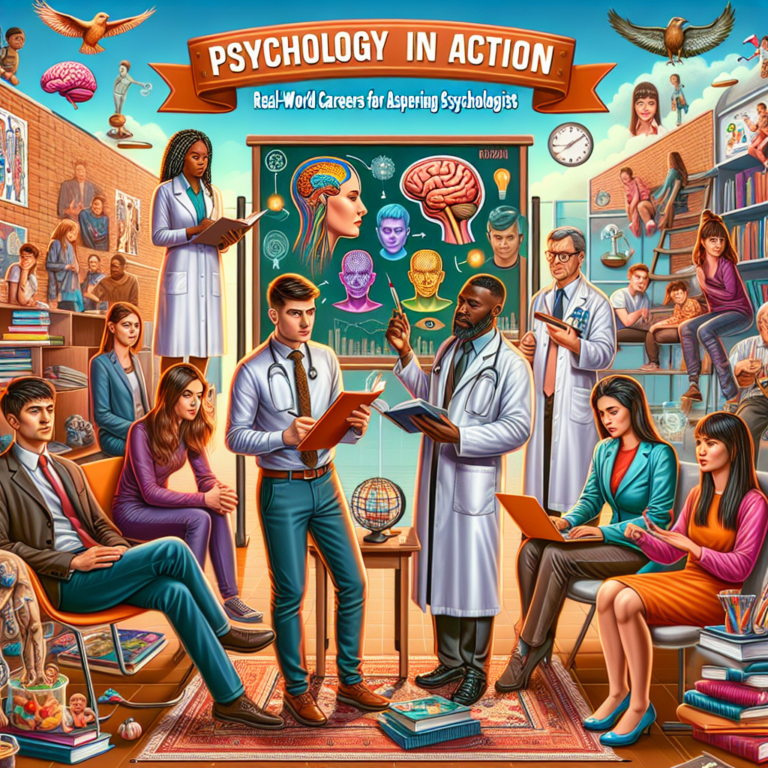
Introduction: The Essential Guide to Mental Health Professionals
In today’s fast-paced world, where stress and anxiety seem to crop up around every corner, the relevance of mental health professionals has never been more pronounced. As we navigate this complex landscape of emotional well-being, understanding the roles of these professionals becomes crucial. This article will delve deep into the topic—Understanding Mental Health Professionals: Therapist vs. Psychologist Explained—shedding light on their differing qualifications, methodologies, and areas of expertise.
When looking for help, many may wonder: "Should I see a therapist or a psychologist?" This question can significantly impact one’s path to mental wellness. Join us as we unpack this essential topic in a clear, engaging style that empowers readers with knowledge and clarity.
Understanding Mental Health Professionals: An Overview
Before diving into the specifics, let’s outline who mental health professionals are. Broadly, they are trained individuals who assist others in achieving emotional and psychological well-being. If you, too, have contemplated the distinctions between therapists and psychologists, you’re not alone. Understanding these differences can guide you toward the right support.
The Therapist: An Evolving Role
What Is a Therapist?
A therapist is a broad term that encompasses various mental health professionals, including licensed social workers, marriage and family therapists, and addiction counselors. Therapists often focus on treating emotional and psychological issues through talk therapy, making them accessible first points of contact for individuals seeking help.
Areas of Specialization
Therapists may specialize in various areas, including but not limited to:
- Individual therapy
- Couples therapy
- Family therapy
- Group therapy
Common Therapy Modalities
Therapists employ various therapeutic modalities to address clients’ needs, including:
- Cognitive Behavioral Therapy (CBT): Useful for treating anxiety and depression, CBT focuses on challenging negative thought patterns.
- Dialectical Behavior Therapy (DBT): Primarily used for borderline personality disorder, DBT emphasizes emotional regulation.
- Humanistic Therapy: Aimed at fostering self-actualization and personal growth, humanistic therapy encourages clients to focus on personal strengths.
Case Study: An Individual’s Journey with Cognitive Behavioral Therapy
Case Overview: Sarah, a 30-year-old woman, dealt with debilitating anxiety that affected her daily life. Through 12 sessions of CBT with her therapist, she learned to identify and challenge her negative beliefs.
Analysis: Sarah’s experience illustrates how therapy can provide a structured approach to identifying and modifying harmful thought patterns, leading to significant improvements in her emotional state.
The Psychologist: A Specialized Perspective
What Is a Psychologist?
Psychologists possess advanced degrees, typically a doctoral degree in psychology, and are trained to diagnose and treat various mental health disorders. They utilize tests and assessments to better understand their clients’ psychological conditions.
Key Differences with Therapists
While all psychologists may be considered therapists, not all therapists are psychologists. Here are pivotal distinctions:
- Education and Training: Psychologists undergo extensive training, which includes a focus on research methodologies, psychological testing, and therapeutic techniques.
- Assessment Capability: Psychologists are qualified to conduct psychological assessments, which can provide insights into a client’s mental processes.
Areas of Specialization
Psychologists may specialize in various fields, such as:
- Clinical psychology: Focused on diagnosing and treating mental illness.
- Counseling psychology: Emphasizing personal, social, educational, and career adjustment.
- Industrial-organizational psychology: Applying psychological principles to workplace settings.
Case Study: The Impact of a Comprehensive Psychological Assessment
Case Overview: James, a 45-year-old executive, sought help for chronic stress affecting his performance at work. His psychologist conducted a comprehensive assessment, revealing underlying issues rooted in perfectionism and unrealistic self-expectations.
Analysis: This case underscores the value of psychological assessments. By identifying the root causes of his stress, James was able to work with his psychologist on targeted strategies for improvement.
Understanding the Modes of Interaction
How Therapists and Psychologists Work with Clients
Both therapists and psychologists share the primary goal of improving their clients’ emotional well-being, but their approaches may differ.
1. Therapeutic Techniques:
Therapists may utilize various counseling techniques that emphasize empathetic listening, emotional support, and practical problem-solving. In contrast, psychologists often incorporate evidence-based assessments and diagnostics in their work.
| Therapist Techniques | Psychologist Techniques |
|---|---|
| Active Listening | Psychological Assessments |
| Supportive Counseling | Research-Based Methodologies |
| Psychoeducation | Cognitive and Behavioral Assessments |
| Group Sessions | Individualized Treatment Plans |
2. Progress Tracking:
Therapists may focus on subjective assessments based on client feedback, while psychologists often rely on standardized tests and formal assessments to track progress.
Choosing the Right Professional for Your Needs
When to Consult a Therapist
- If you’re experiencing mild to moderate emotional struggles.
- If you want a safe space for discussing personal issues without the need for formal diagnoses.
- If you’re interested in skill-building strategies to manage stress or anxiety.
When to Consult a Psychologist
Situations That May Call for Psychological Evaluations:
- When experiencing significant, debilitating symptoms of a mental illness.
- If you require a formal diagnosis for insurance purposes.
- If you’re interested in psychological testing techniques to better understand your mental health.
Addressing Common Concerns: FAQs on Mental Health Professionals
1. Can therapists and psychologists work together?
Yes! They often collaborate to ensure clients receive comprehensive care. For instance, a psychologist may refer a client to a therapist for ongoing support after completing an assessment.
2. Are therapy sessions always confidential?
Generally, yes. Both therapists and psychologists are bound by confidentiality laws, though there are exceptions for child abuse or risk of harm to self or others.
3. How long does therapy typically last?
Therapy duration varies based on individual needs. Some may find relief in a few sessions, while others may need long-term support.
4. How do you know if a therapist or psychologist is right for you?
Client compatibility is key. It’s often helpful to schedule initial consultations with potential providers to gauge their approach and ensure you feel comfortable.
5. What if I don’t feel progress during therapy?
This is not unusual! It’s important to communicate any concerns with your provider. They can adjust techniques or recommend further evaluation if needed.
Conclusion: Your Path to Mental Wellness Awaits
In summary, understanding the nuances between therapists and psychologists is key to making informed choices in mental health care. Each role serves vital functions but requires careful consideration regarding your individual needs.
Whether you opt for a therapist’s conversational styling or a psychologist’s in-depth assessments, both professionals can make significant contributions to your emotional healing.
If you’re grappling with emotional challenges, know that help is out there. Understanding mental health professionals—Therapist vs. Psychologist Explained—is just your first step toward mental wellness. Embrace the journey, and remember that seeking help is a sign of strength.
This comprehensive exploration of Understanding Mental Health Professionals: Therapist vs. Psychologist Explained offers valuable insights to empower you or your loved ones. Share this knowledge and help pave the way for better mental health in your community.














